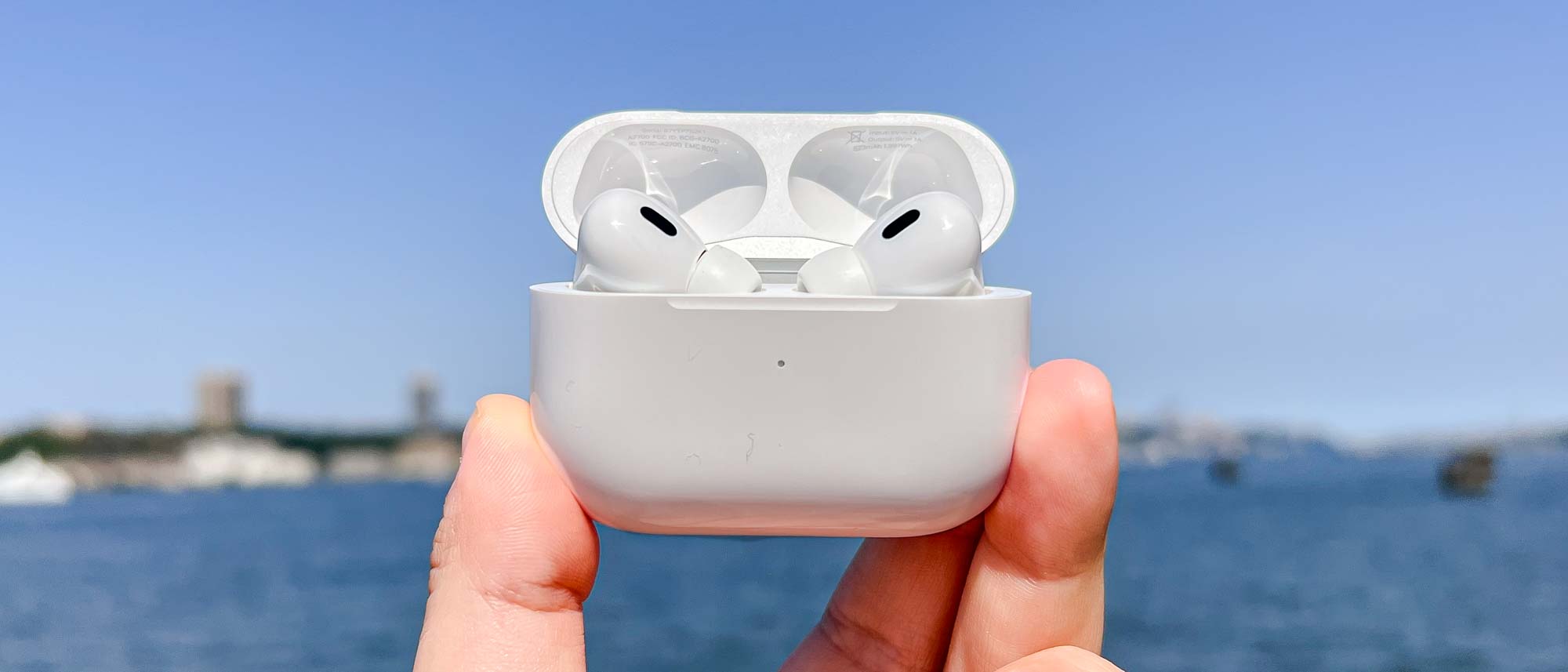Tom's Guide Verdict
Apple has delivered a substantial upgrade with the AirPods Pro 2. They amp up many of the features we loved about the original, and while they’re not perfect, they offer some of the best noise cancelation and spatial audio of any pair of earbuds available.
Pros
- +
World-class noise cancelation
- +
Volume controls right on the stem
- +
Dolby Atmos spatial audio
- +
Improved battery life
Cons
- -
Audio performance needs finessing
- -
Lackluster call quality
- -
Lanyard costs extra
Why you can trust Tom's Guide
Recent updates
Update: Since my original review, Apple has updated the wireless charging case to a USB-C port, but there have been some additional changes too. To find out exactly what's changed read my AirPods Pro 2 (2023) vs. AirPods Pro 2 (2022) face-off.
Price: $249 / £229 / AU$399
Colors: White
Battery life (rated): 6 hours; 30 hours (charging case)
Connectivity: Bluetooth 5.3 (codec support: AAC)
Water resistance: Yes (IPX4 rated)
Size: 1.22 x 0.86 x 0.94 inches (per bud); 1.78 x 2.39 x 0.85 inches (charging case)
Weight: 0.19 ounces (per bud); 1.8 ounces (charging case)
The AirPods Pro 2, officially called the AirPods Pro (2nd Generation) have taken everything we loved about the Apple's first noise-canceling earbuds to the next level. The AirPods Pro 2 promise 2x the noise canceling performance, and they deliver. In fact, Apple's noise-canceling tech inside the AirPods Pro 2 is among the best we’ve tested. So much so that they win the best noise-canceling headphone in the Tom's Guide Audio Awards 2023.
On the audio front, Apple has included a new custom amp and driver that delivers better lower and higher frequencies, and you can use the iPhone's TrueDepth camera to create a personalized spatial audio sound. You also get longer battery life and the charging case is improved with water resistance and a built-in microphone that helps you find it when it’s lost.
There are still some soft spots in terms of audio performance — the low-end and high-end of the audio spectrum, in particular — that some of its rivals like the newly launched Sony WF-1000XM5 don't have. These are still some of the best wireless earbuds around, and Apple's Adaptive Audio enhancements make them an even stronger rival to some of the very best noise-canceling earbuds I've tried.
For more on how the AirPods Pro 2 compare to the competition, check out our Beats Studio Buds vs. AirPods Pro 2 face-off, our AirPods Pro 2 vs. Sony WF-1000XM4 and our Sony WF-1000XM5 vs. AirPods Pro 2 comparisons.
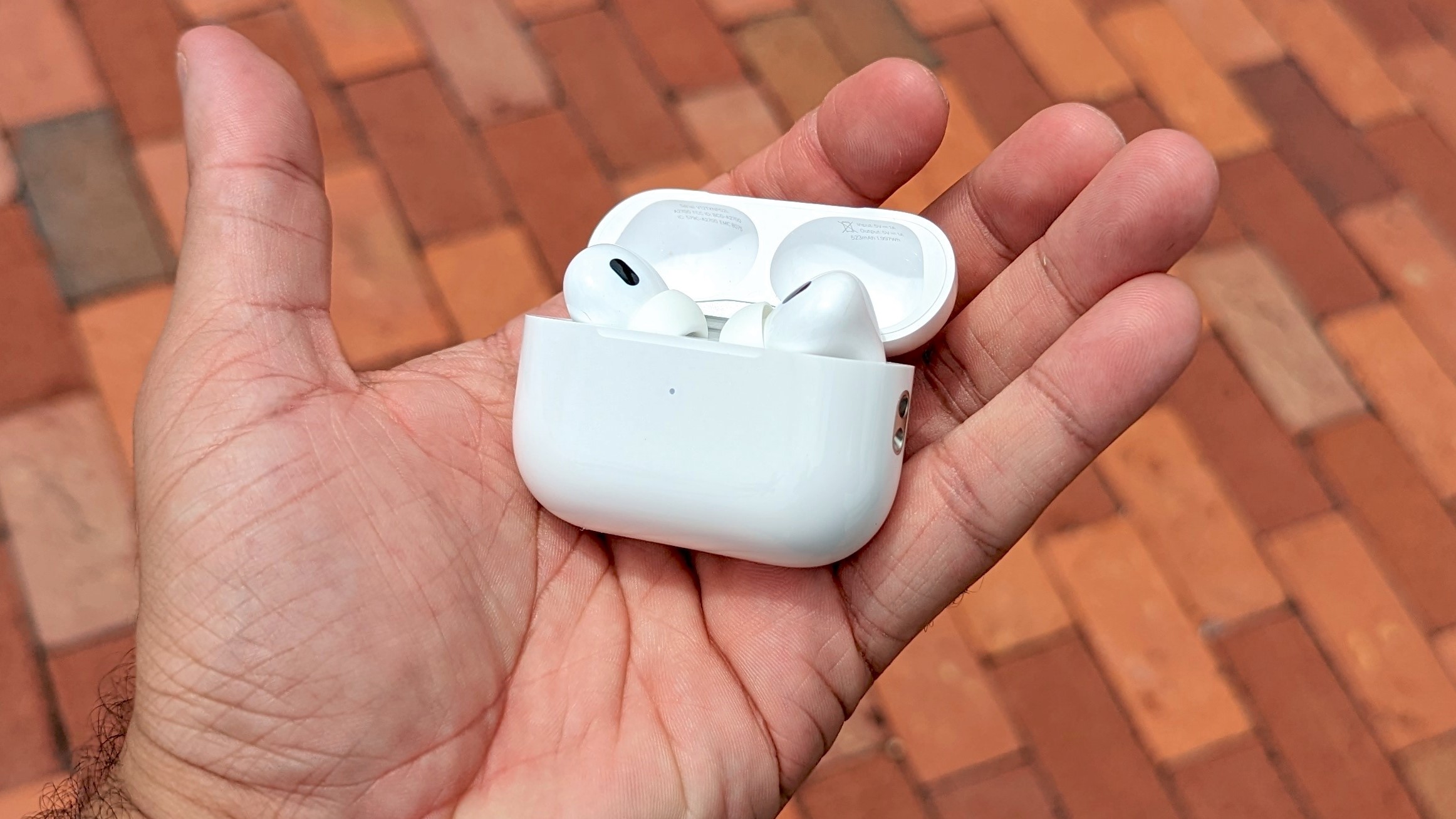
Apple AirPods Pro 2 review: Price & availability
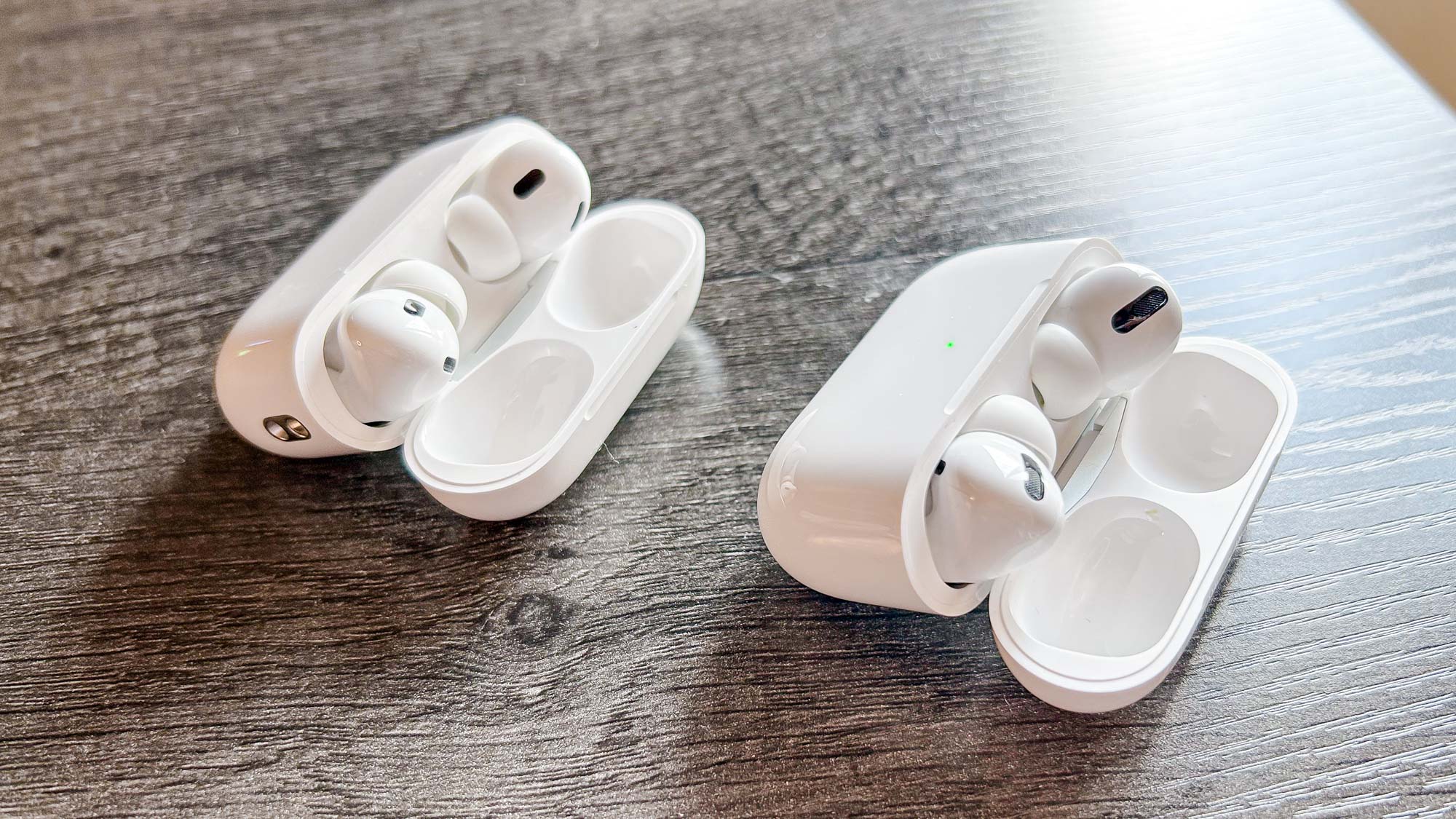
Apple's AirPods Pro 2 earbuds originally launched at $249 / £249 / AU$399, which is the same amount the original AirPods Pro launched at in 2019 — interestingly the arrival of the USB-C option saw the price drop to £229 in the U.K. They are available from the Apple Store at the full asking price, but they can also be regularly found discounted at online retailers including Amazon, Walmart and Best Buy.
The original AirPods Pro have been discontinued on the Apple Store, but can still be found on sale while stocks last with the best AirPods deals.
In terms of the competition, that’s slightly less than the going rate for a pair of flagship noise-canceling earbuds. The Sony WF-1000XM5, a top contender for the best wireless earbuds, comes in at $299 while the newly launched Bose QuietComfort Ultra Earbuds cost $299. That means you can get the AirPods Pro 2 for quite a bit less.
Sure, there are a number of great true wireless earbuds available for less than $200 — the OnePlus Buds 3 come to mind — but the AirPods Pro 2 are the strongest choice for iPhones.
AirPods Pro 2 review: Design
At first glance, it can be hard to tell the difference between the first-generation AirPods Pro and the new AirPods Pro ― but spend enough time with them and you'll have no problem telling them apart from one another.
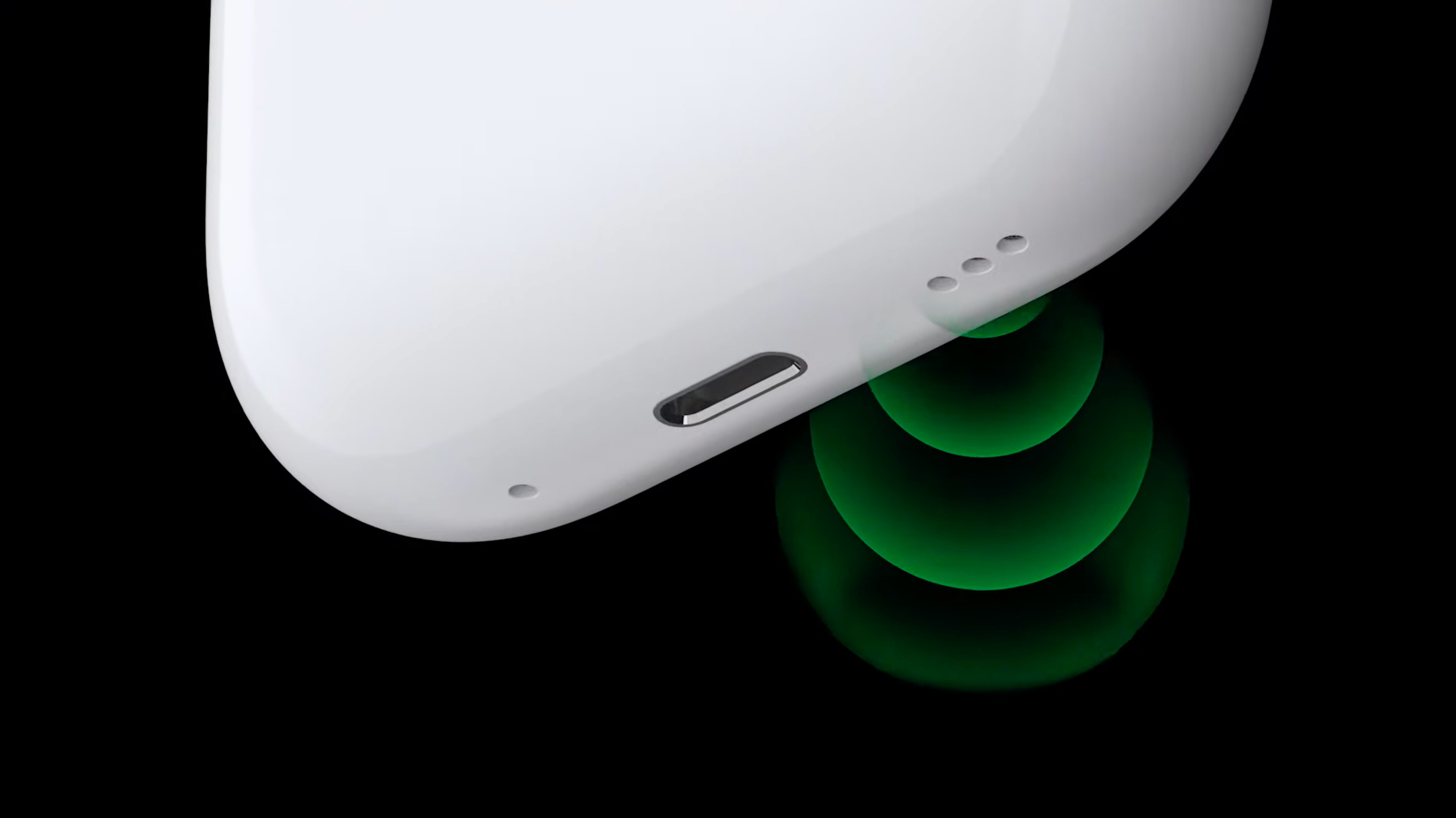
The key distinction between them are the built-in speaker on the case that you’ll see every time you look at the charging port and the new loop hook for a lanyard. These aren’t radical redesigns by any measure, but they did prevent me from picking up the wrong AirPods when I had the two pairs next to one another.
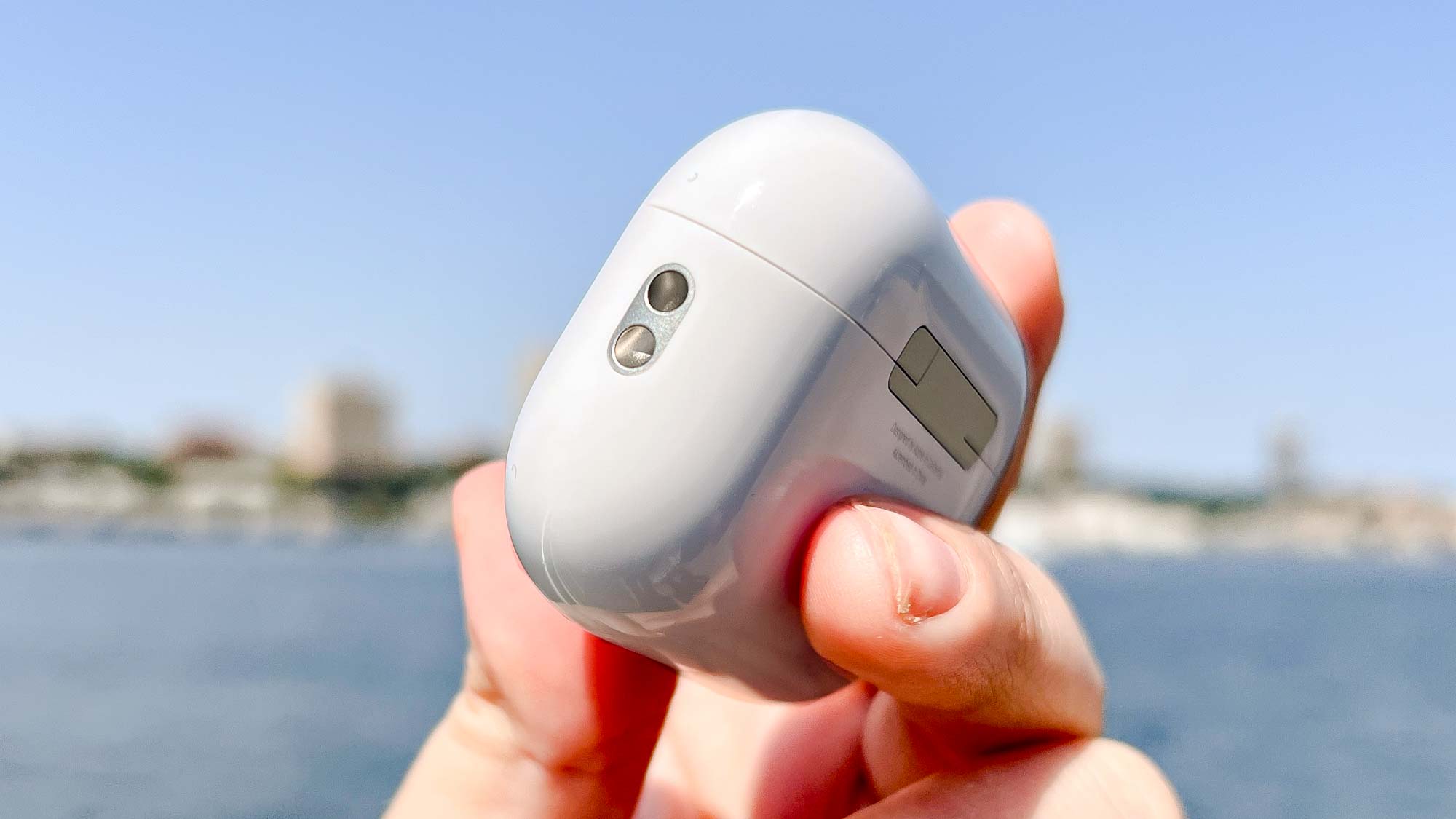
When holding the two earbuds, though, you won’t notice much of a difference in weight or size. The original AirPods Pro measure in at 1.2 x 0.9 x 0.9 inches while the new AirPods Pro 2 are 1.22 x 0.86 x 0.94 inches — basically, the numbers differ slightly but there’s no tangible difference.
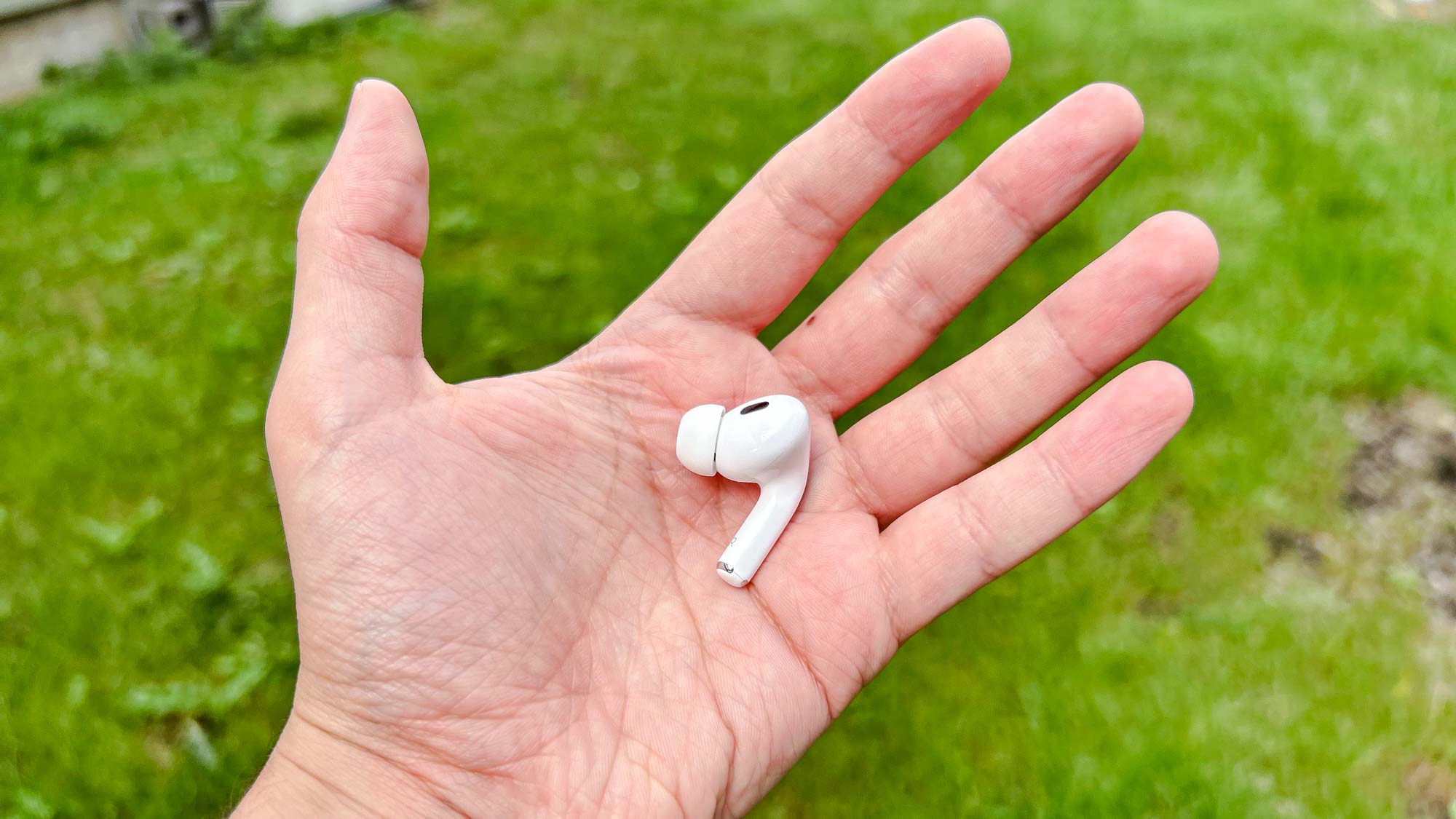
In terms of weight, both the original AirPods Pro and the new AirPods Pro 2 are 0.19 ounces each. Put them in your ears and you won’t feel a difference.
The real change, of course, is going to be to the earbuds themselves and the hardware that’s inside of them. For the new AirPods Pro 2, Apple is using a new Skin-detect sensor instead of a proximity sensor to tell when the earbuds are on versus when you take them off that offers a significant improvement compared to the original AirPods and includes a smaller pair of eartips in the box to provide folks with smaller ears a better seal.
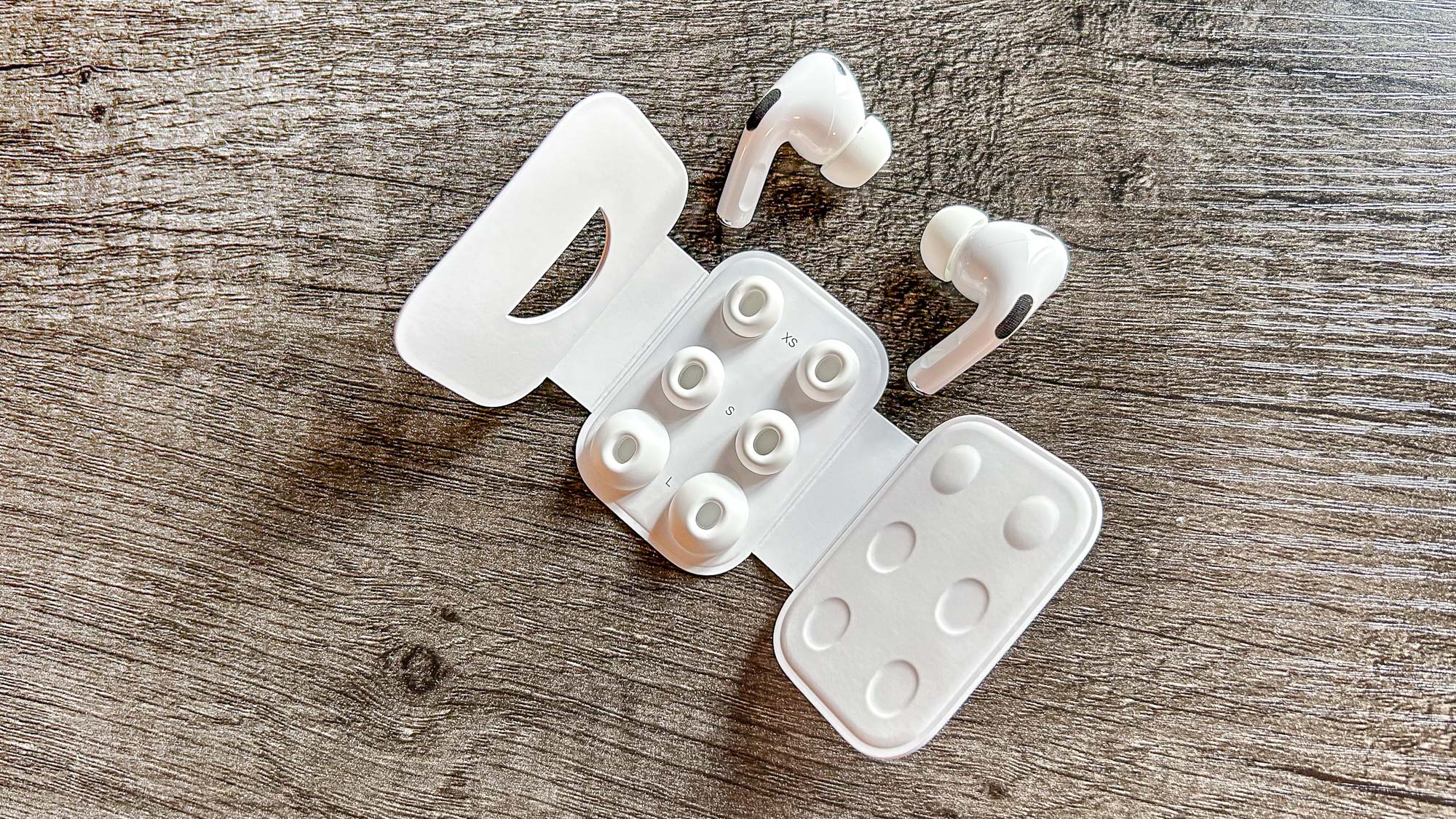
Having the right seal is absolutely crucial ― without it, you’re still going to hear a lot of outside noise and you’ll lose out on some of the bass response. Thankfully, you can test the fit at any time using the Test My Fit option in the AirPods Pro settings.
Inside the earbuds are two new key design details: the cutting-edge H2 Wireless Chip and the custom amplifier that powers the re-tuned drivers. We’ll get into how these factor into performance later in the review, but we couldn’t end the design section without at least mentioning their existence in the earbuds.
Overall, while the design isn’t a major departure from the original AirPods Pro ― there are a number of subtle exterior and substantive interior improvements that set the two apart.
Apple AirPods Pro 2 review: Comfort
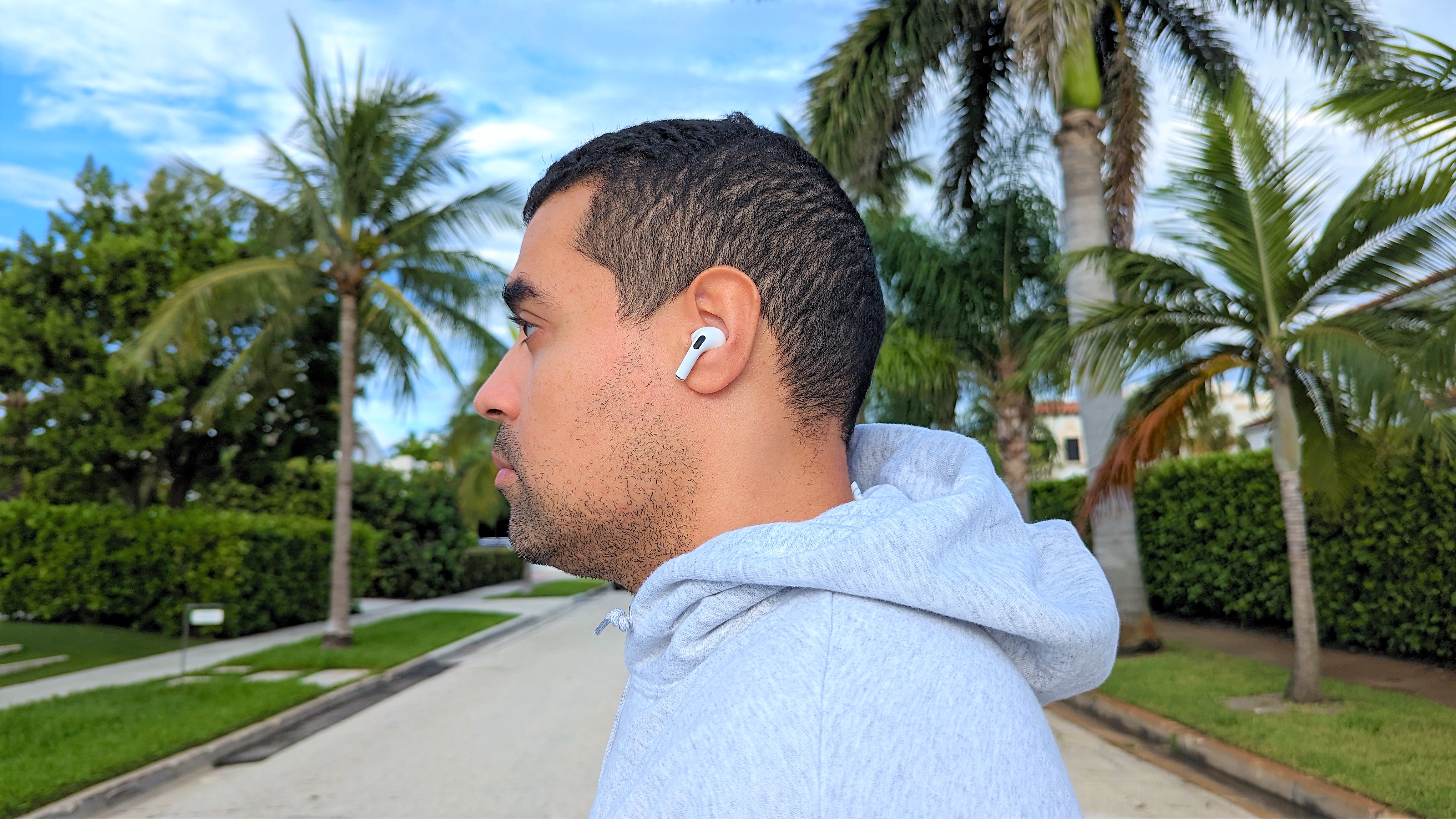
Here it is, the one of the big reasons you should upgrade to the AirPods Pro 2 if you’re still using a first- or second-generation pair of standard AirPods — these are wildly comfortable by comparison.
They’re more comfortable because the AirPods Pro 2 continues to use the soft silicon tips of its predecessor rather than the plastic shell design used on the original AirPods. The difference is that the silicon tips gently conform to the ear canal rather than force it to open wider for the hard plastic casing. In practice that means you can wear the earbuds a lot longer without having to take them out — allowing for all-day wear without issues. (You can also read about how this writer tried foam ear tips with his AirPods Pro 2 and they made a big difference).
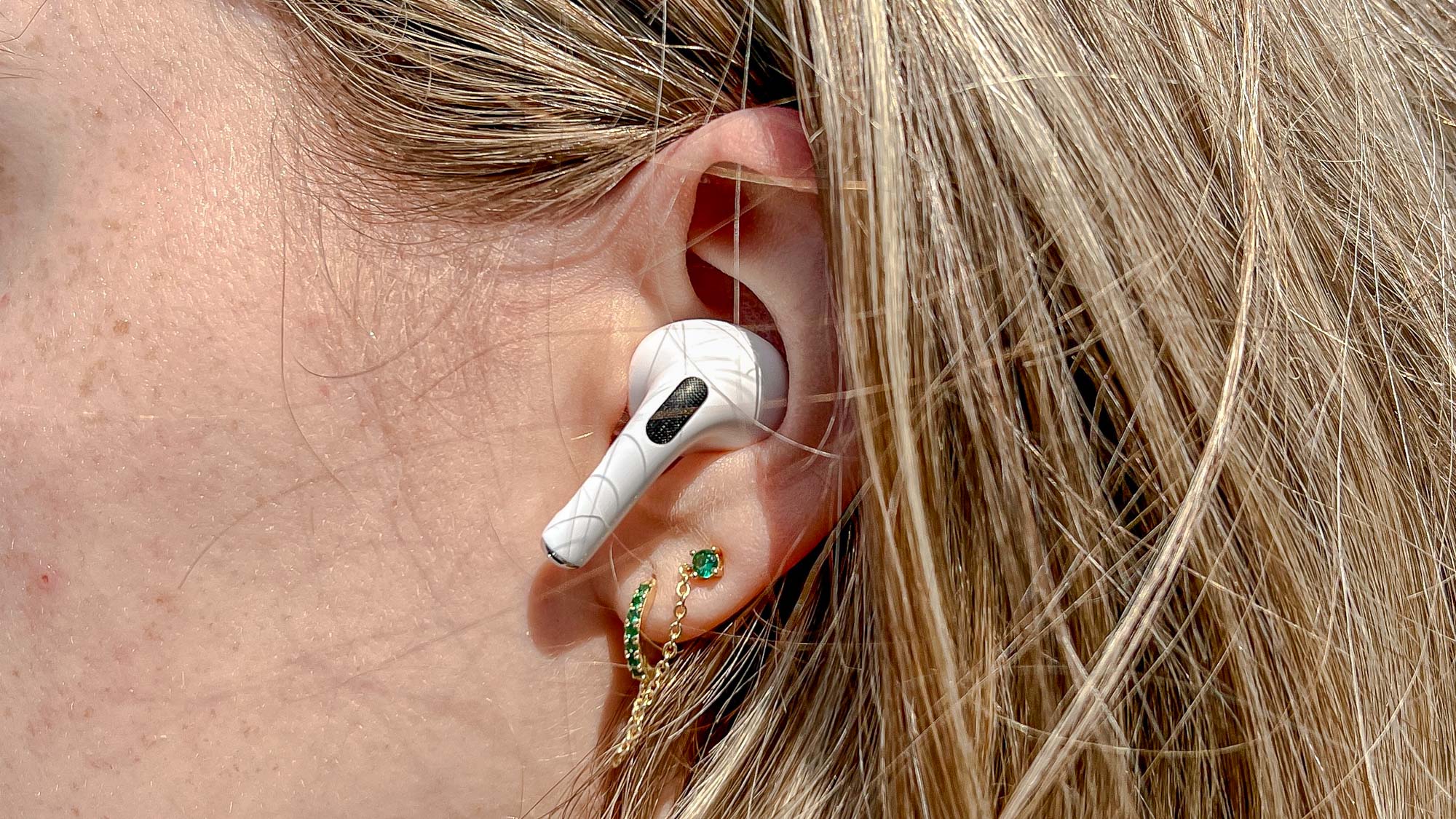
As mentioned earlier, you definitely want to get the fitting right, so take your time with the included ear tips to make sure that you’re getting the best seal. They may not feel quite as secure in your ear when you’re doing more intense athletic activities — we certainly wouldn’t wear them while playing sports, for example — however they are safe to be taken to the gym and are among some of the best running earbuds and best workout headphones. We also tried running with the AirPods Pro 2 to see how they'd hold up.
Overall, these are still in-ear earbuds and they’re going to feel uncomfortable after a few hours of use. Ears simply weren’t meant to have something blocking them for hours a day. As far as in-ear headphones are concerned, however, these are more comfortable than others.
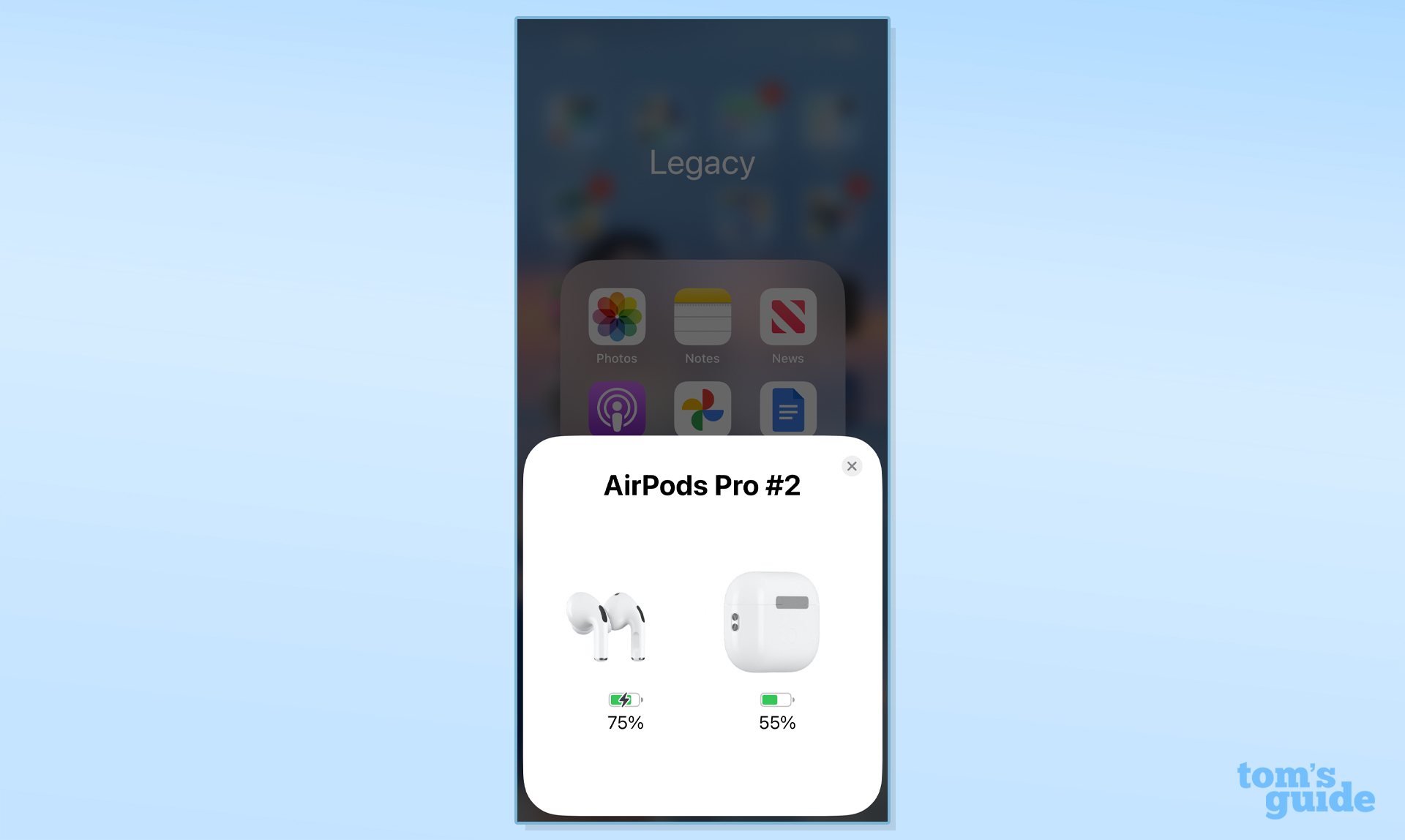
Apple AirPods Pro 2 review: Setup
If you’re using an iOS device, setup is seamless. Truly all it takes is holding the AirPods near your iOS device and you’ll see a prompt on the screen asking if you want to pair them. If you’ve owned a pair of Apple earbuds before, you know the drill.
What’s new this time around is that the image of the earbuds displayed on your phone will match the exact earbuds in your hands — which means, if you’ve paid extra for an emoji engraving, that too will appear on the phone when you go to pair it.
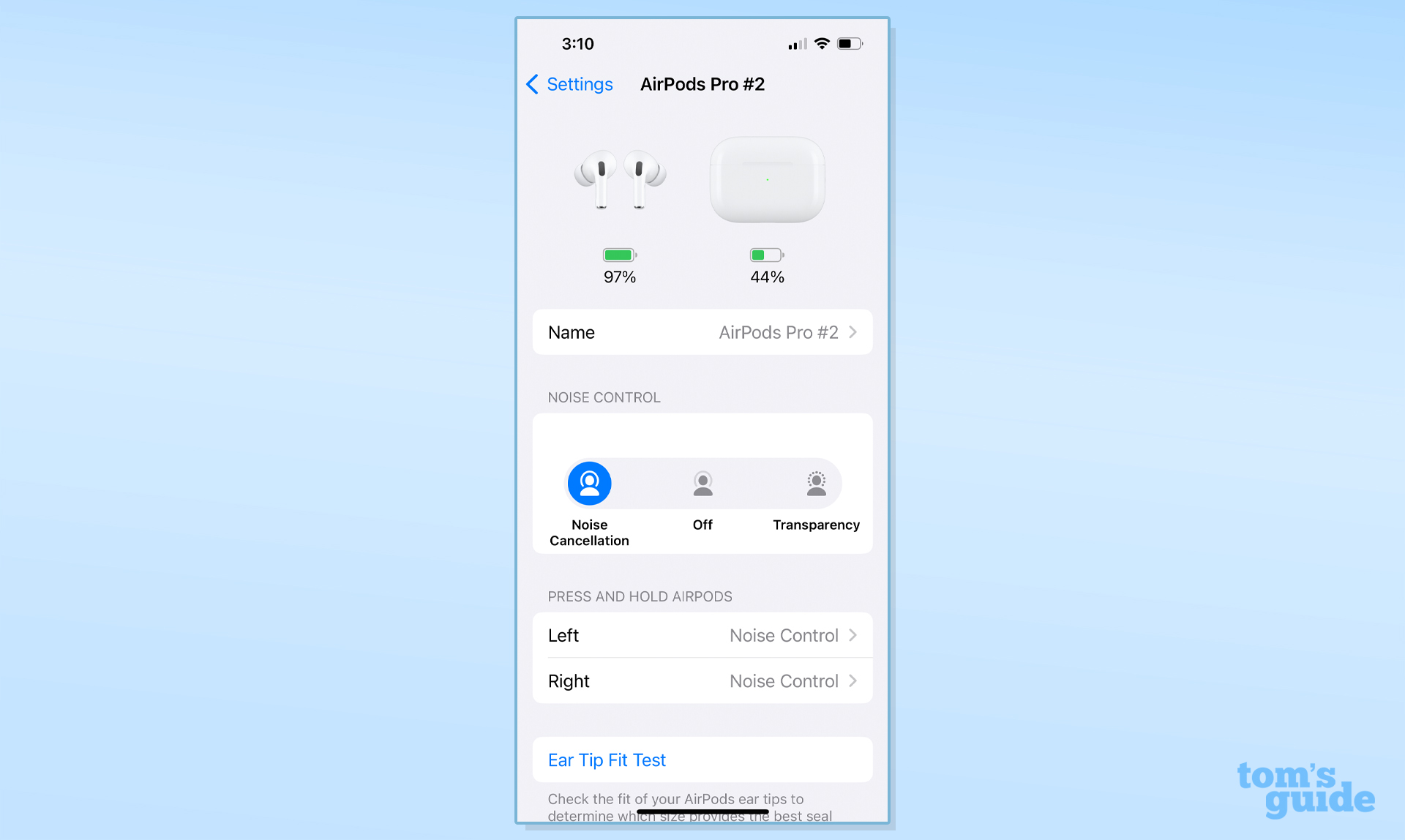
Once paired, the AirPods will then ask if you want to try personalized spatial audio. To get the proper measurements, the earbuds will play music with varying levels of height to see which one sounds the most 3D to your ears. It’s similar in a lot of ways to a test at the eye doctor when they ask whether image one or image two looks clearer. It might not be 100% accurate, but it does help to make the experience better overall and we absolutely recommend doing the 20-second test upon setup.
If you want more customization options, those can be found in the AirPods settings that can be found in the Settings app on your iOS device. Instead of burying the menus deep inside the Bluetooth connections setting, it’s right up near the top of the Settings app and easy to find. Inside you’ll find options to rename the AirPods, switch the noise control from Transparency Mode to Noise Cancelation and different options for the controls if you don’t like the default settings. This is also the place you’ll be able to re-enable the personalized spatial audio setting if you turned it down at setup.
There’s not a lot that’s changed here, admittedly, but the few bits and pieces that have changed are smart decisions.

Apple AirPods Pro 2 review: Controls
One problem the original AirPods Pro had that wasn’t talked about often was the inability to change the volume on the earbuds. If you wanted to change the volume, you’d either have to ask Siri nicely or pull your phone out of your pocket to change it yourself.
That’s not an issue with the AirPods Pro 2 that have improved touch controls that support swiping up and down on the stems to raise or lower the volume. Beyond the volume controls, you can tap the earbuds once to play or pause music, skip or rewind tracks with two or three taps, respectively, and hold to toggle active noise cancelation.
These controls will work regardless of whether you’re on iOS or Android, but if you want to control the earbuds with Siri, you’re going to need to stick with iOS.
Apple AirPods Pro 2 review: Siri features
Here’s where the H2 chip really shines. Being able to use hands-free Siri is great — as is getting notifications read to you when they come in. With the help of the AirPods Pro 2, Siri actually feels like a smart assistant rather than a glorified food timer.
As far as outright new features are concerned, there aren’t many here. Everything you could use Siri for with the original AirPods Pro is available on the AirPods Pro 2 and vice versa. The small difference here being that the earbuds now have more precise tracking when you enable the Find My… option in the AirPods settings.
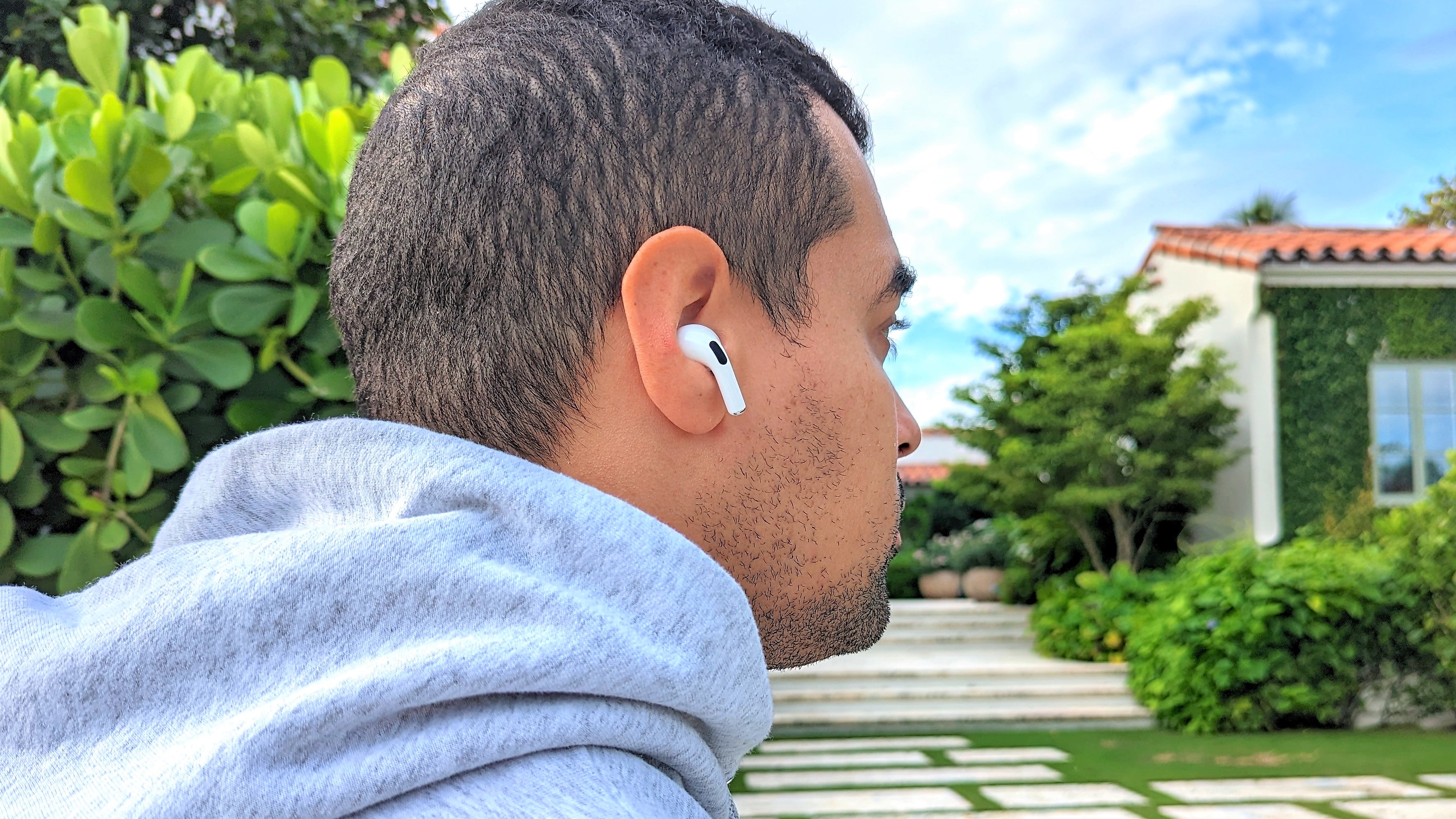
Apple AirPods Pro 2 review: Adaptive noise cancelation
Although the Bose QuietComfort Ultra Earbuds and Sony WF-1000XM5 both outperform the AirPods Pro 2 in terms of the best noise-canceling wireless earbuds, the AirPods Pro 2 are remarkably effective.
When it’s active with music playing at a medium volume the noise cancelation can overcome what I feel is 95% of household and office noise. You won’t be able to hear a person sitting next to you, even if you’re looking at them, and the dull hum of the office will fade into nothing.
That being said, when you just have them on without any music playing, some sound is going to slip through and you might even hear the small hiss of the earbuds trying to cancel out small amounts of ambient noise.
In terms of improvements, Apple says the AirPods Pro 2 cancel out twice the amount of noise as their predecessors — admittedly tough data to corroborate — but there is a noticeable difference between the two. That said, we feel the noise cancelation is at least as good as other market-leading earbuds like the older Sony WF-1000XM4, and easily sit within the top wireless earbuds of all-time when it comes to sheer noise-cancelation.
Apple AirPods Pro 2 review: Transparency mode
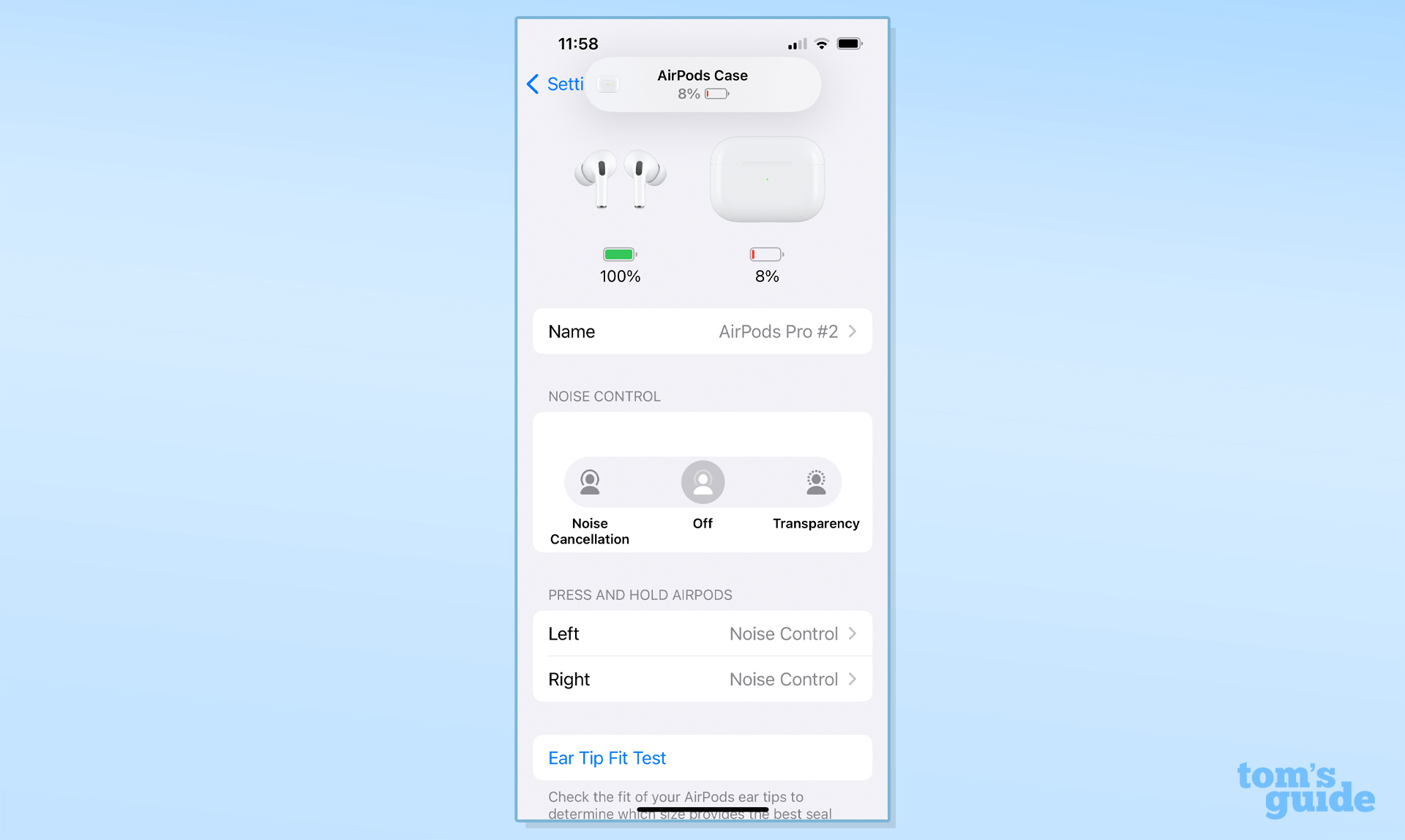
Transparency mode is the polar opposite of active noise cancelation — instead of keeping noise out, it amplifies ambient noise — and it does a darn good job of it.
To activate it, you can either take one earbud out and leave a single earbud in, or press and hold either of the stems to change from active noise cancelation to Transparency Mode.
So, why would you want Transparency Mode on in the first place? Well, imagine you’re on a plane and you’re asked what you’d like to drink. Instead of taking out the earbuds, you can keep them in, turn on Transparency Mode and carry on with a regular conversation. You can also have it turned on when you’re running to hear traffic, or in an office if you want to stay tuned in to what everyone else is saying.
Apple AirPods Pro 2 review: Sound quality
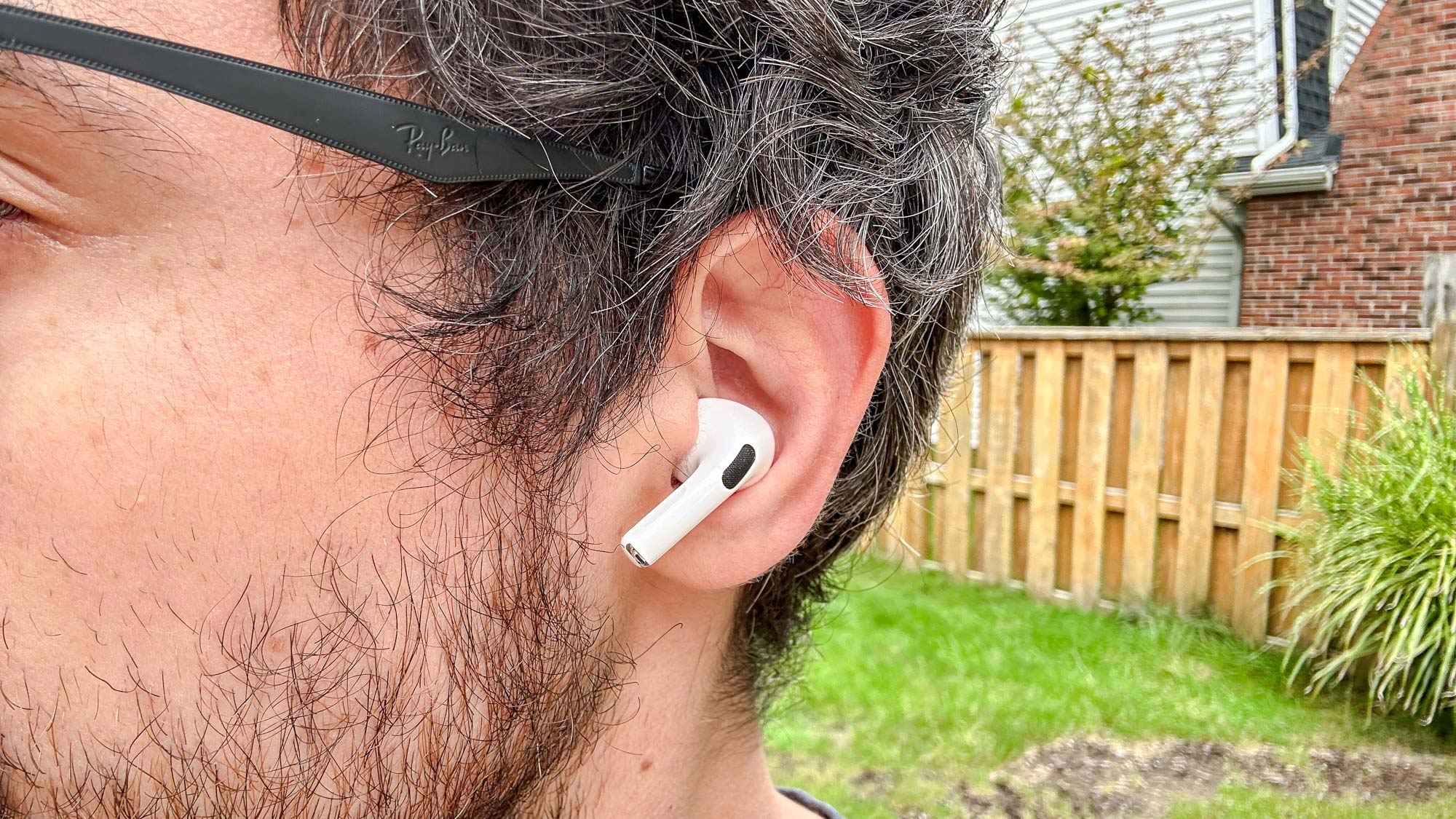
Look, the AirPods Pro 2 aren’t ever going to replace my open-back Sennheiser headphones that I use for critical-listening — but they do articulate some really nice details that you wouldn’t be able to hear as clearly with other earbuds. For example, you might’ve noticed that the introduction to "Hurt" by Nine Inch Nails (and famously covered later by Johnny Cash) had some dissonance at the beginning of the song, but you’ll really hear how powerful that clashing sound is with the new AirPods Pro.
Speaking of powerful, we have to hand it to Apple on the way the new earbuds convey Dolby Atmos spatial audio. Compared to the competition, the AirPods are miles ahead with spatial audio technology and music simply transforms into a three-dimensional experience with these earbuds in. Albums mixed in Atmos — like Natural Brown Prom Queen — feel all-encompassing. There’s no edge to the soundstage but rather it extends all around you.
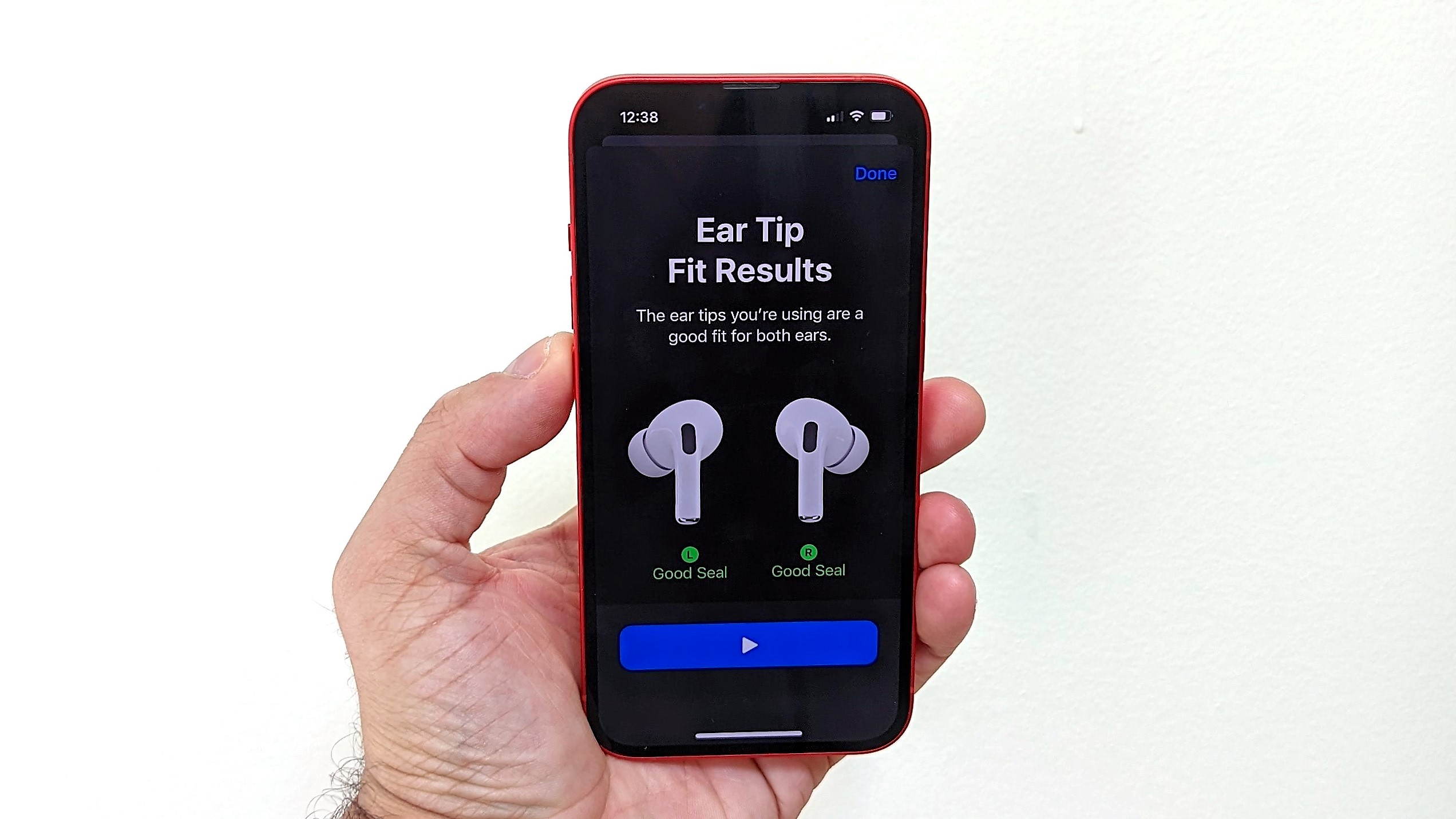
That’s not to say that the imaging — where the instruments are positioned in the mix — is perfect, nor are all instruments perfectly represented in the earbuds. The higher frequencies can, at first, feel a bit fatiguing compared to other headphones (just try any Ozzy Osbourne song if you don’t believe me) and the low-end could still be a bit richer. Depending on what kind of music you listen to that shouldn’t be a deal-breaker, but it might make some of your favorite songs — including one of my own favorites "Dark Necessities" by Red Hot Chili Peppers — feel a bit light when it comes to the low-end.
Listening to the same song on both pair of earbuds — the original AirPods Pro and the AirPods Pro 2 — you can hear a slight uptick in the bass response, but it’s not so substantial that it’s worth ditching the older generation just for the new amp and driver.
The other feature we take umbrage with is the lack of true lossless support. Apple has updated every song in Apple Music to stream in lossless quality — but that support ends when you put on a pair of earbuds and the data is transmitted wirelessly. Because some form of compression will always be needed to send data over Bluetooth we weren’t expecting a completely new codec here but it does hurt to be paying for a service that we can’t fully appreciate with Apple’s own true wireless earbuds.
Apple AirPods Pro 2 review: Battery life
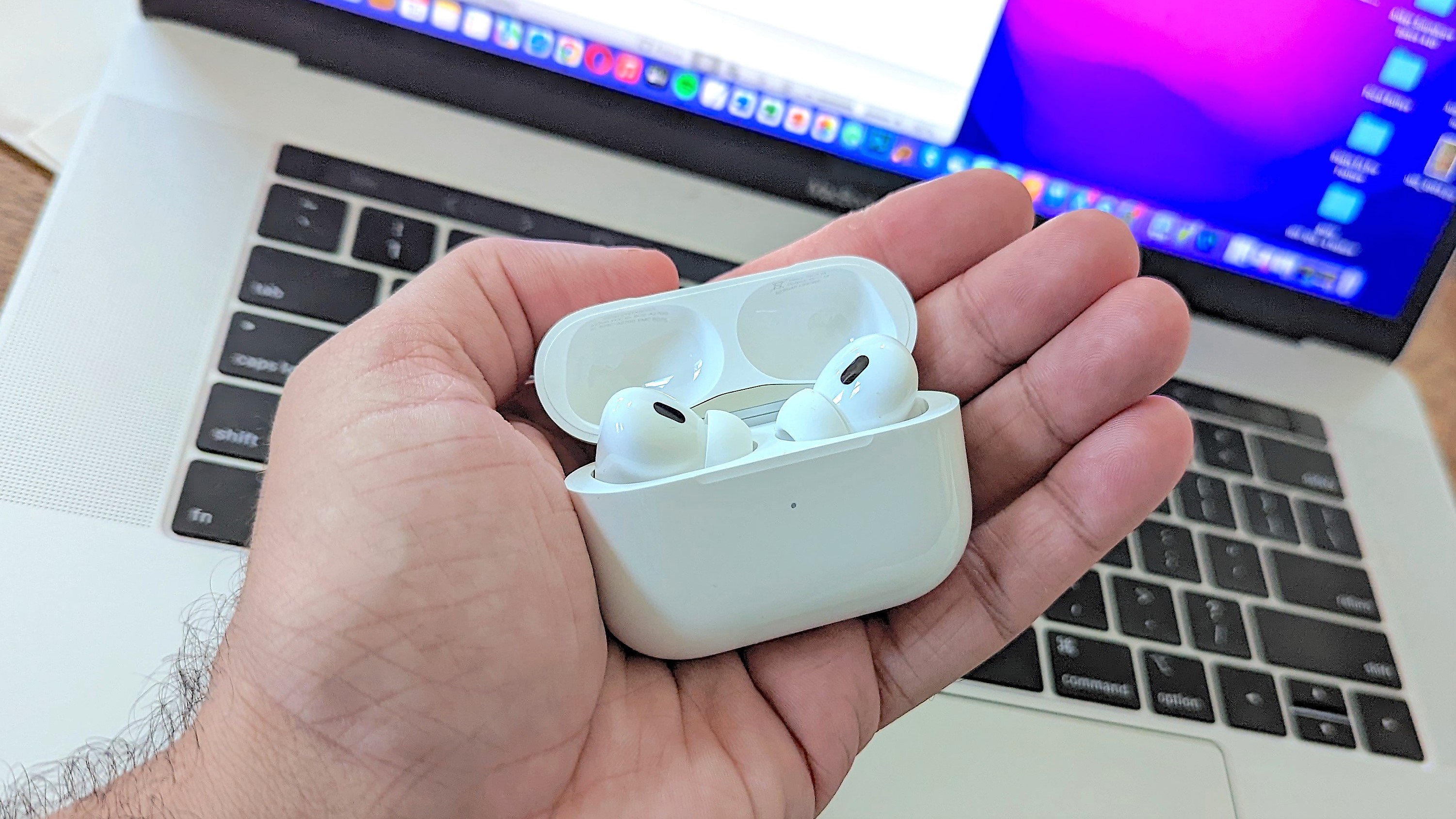
While true lossless audio support didn’t make the cut for the list of improvements, improved battery life certainly did. Now, instead of 24 hours of charge in the case, you’re looking at 30 hours, and the earbuds last six hours on a single charge instead of four.
In our testing, we were able to verify those numbers — though we landed a little closer to five hours per charge and 26 hours with the case. Those numbers are likely to change as the earbuds get more use over the coming months, so take the out-of-the-box numbers with a grain of salt.
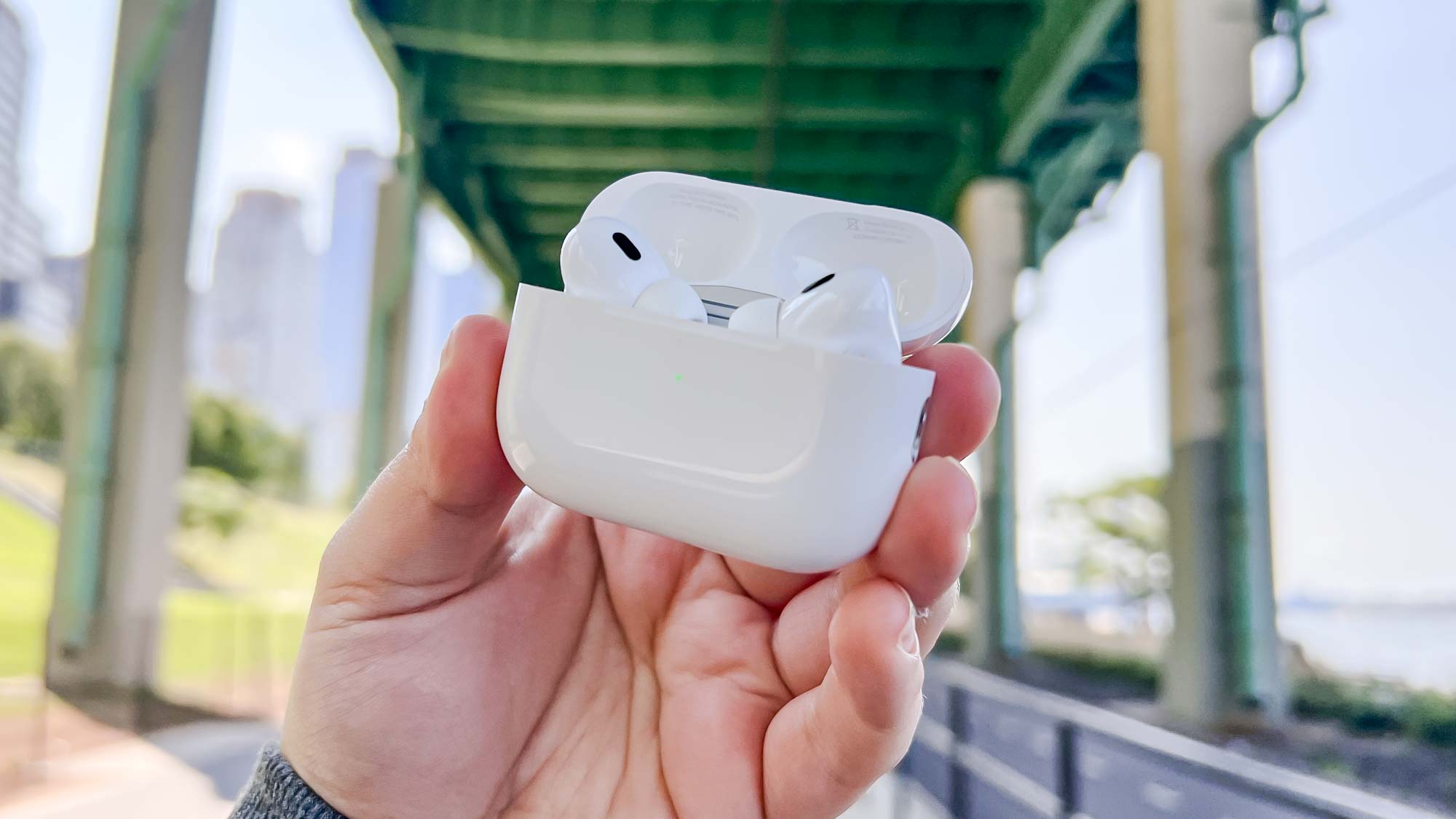
What we found a bit strange about the earbuds is that they only glow amber when charging temporarily. The LED on the case will glow for about 15 seconds, then shut off. That made us worried that the AirPods weren’t charging at all. We left them on the charger for two hours — and, lo and behold, we returned to them fully charged.
One of Apple’s big announcements is that the redesigned MagSafe Charging Case can now be charged by an Apple Watch charger and will make a noise when it starts charging. It’s a subtle tweak and we’d rather have a fully glowing amber LED for the duration of charging, but that’s a personal preference rather than some fault with the AirPods themselves.
Apple AirPods Pro 2 review: Call quality & connectivity

Call quality is an area where we were hoping to see some improvement, but we didn’t find much: calls made with the AirPods Pro 2 always sounded a bit muffled compared to a call on speakerphone. Unfortunately, that meant people still preferred us using the phone’s built-in speaker rather than the AirPods — and, after listening to a voicemail recorded with the AirPods — we don’t blame them.
The reason we’re not seeing much of a change — if any — is because Apple hasn’t done much to the microphone array inside the earbuds themselves. Yes, the H2 chip may be able to do a bit of audio processing to eliminate more background noise but, as far as actual vocal clarity is concerned, the AirPods are limited by the microphones.
That’s not to say that the AirPods have the worst call quality of any earbuds we’ve tried — they don’t — it’s just that the call quality is relatively lackluster for what is otherwise a very premium product.
Apple AirPods Pro 2 review: Verdict
They’re not worth tossing away a perfectly good pair of original AirPods Pro for, but the AirPods Pro 2 are absolutely worth it for first-time buyers and folks in need of a replacement. These are nearly perfect true wireless earbuds — with a few minor issues that prevent them from scoring the highest mark we can give out. For new iPhone 14 owners looking for a more tailored listening experience, these are the pinnacle of Apple technology.
How we test
With more than 30 years experience in testing and reviewing consumer audio products for all kinds of media outlets and big-name brands around the world, the Tom's Guide audio team follows a rigorous test regime when it comes to reviewing each and every product and determining the best products to review for recommendation in our buying guides.
We evaluate earbuds based on a five-point system (1 = worst, 5 = best). If a product hits nearly every mark, it’s awarded a coveted Recommended badge, while our Best Value award speaks for itself. Only products with truly exceptional performance across the board are awarded an Editor's Choice badge.
For more information, check out our how we test page for Tom's Guide.
More from Tom's Guide
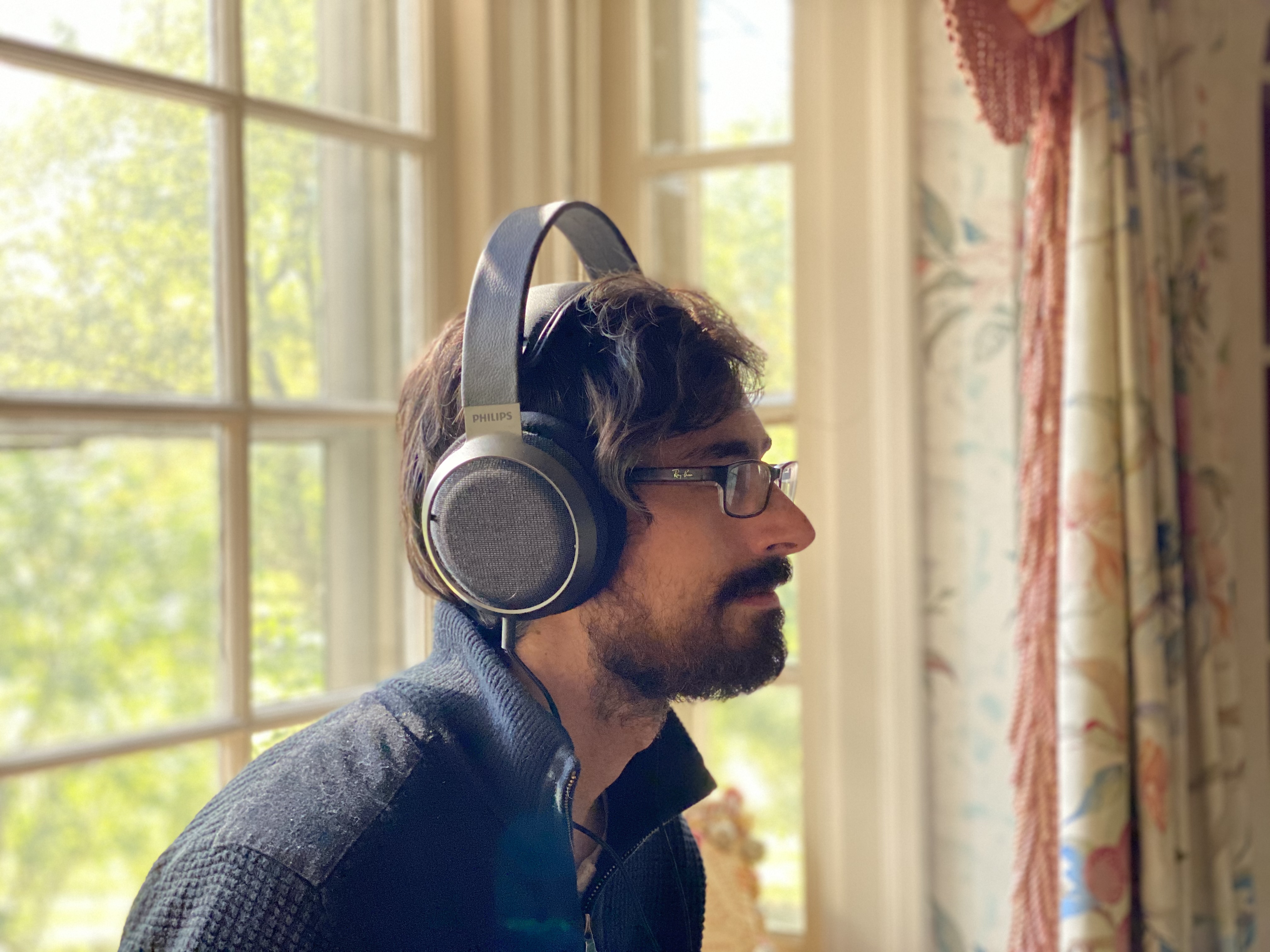
Nick Pino heads up the TV and AV verticals at Tom's Guide and covers everything from OLED TVs to the latest wireless headphones. He was formerly the Senior Editor, TV and AV at TechRadar (Tom's Guide's sister site) and has previously written for GamesRadar, Official Xbox Magazine, PC Gamer and other outlets over the last decade. Not sure which TV you should buy? Drop him an email or tweet him on Twitter and he can help you out.
